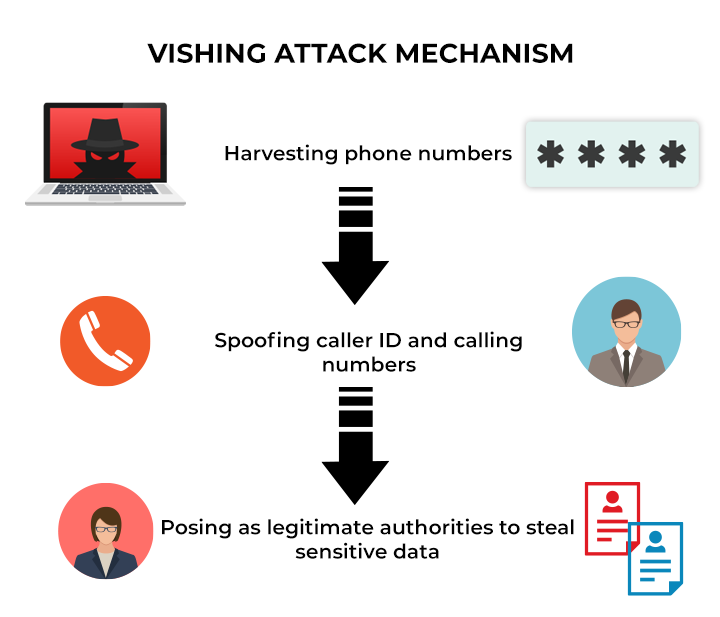Voice phishing, or “vishing,” is currently making headlines around the world, engaging in highly effective campaigns that ensnare victims globally, including those who might consider themselves knowledgeable about such frauds.
These sophisticated operations have led to significant financial losses, with a notable case in South Korea where a single scam swindled a doctor out of 4.1 billion won (approximately $3 million). This incident, involving cash, insurance, stocks, and cryptocurrencies, marked the largest amount ever stolen in the country through a vishing scam, highlighting the potential for enormous financial damage.

How a Vishing Attack takes place.
South Korea, in particular, has become a hotspot for these vishing attacks. Cybercriminals, armed with a detailed understanding of the local culture and legal systems, have executed scams with devastating efficiency.
They often impersonate authority figures, such as officials from the Seoul Central District Prosecutor’s Office, to intimidate victims into complying with their demands, fearing severe legal repercussions if they do not.
Sojun Ryu, from the South Korean cybersecurity firm S2W Inc., emphasizes the role of sophisticated social engineering in these scams. He points out that attackers leverage victims’ psychology by mimicking authoritative entities and using personal information to make their threats more believable.
Ryu, who will be presenting on this topic at Black Hat Asia 2024, highlights that these tactics are not new but have become alarmingly effective, managing to fool even high-income professionals into parting with substantial sums of money.
[blockquote text=”These groups utilize a blend of coercion and persuasion over the phone to deceive their victims effectively. Moreover, malicious applications are designed to manipulate human psychology. These apps not only facilitate financial theft through remote control after installation but also exploit the call-forwarding feature.”]
The vishing phenomenon is not limited to South Korea. Similar scams have been reported globally, with victims losing large amounts of money. For instance, a financial reporter for The New York Times recounted losing $50,000 to a vishing scam.
These scams exploit a combination of social engineering and technology, utilizing malicious applications and call-forwarding features to deceive and manipulate victims effectively. Vishing groups have refined their operational tools over the years, incorporating devices like SIM Boxes to mask their international calls as local, thus increasing their credibility.
Another tool frequently used in these scams is the vishing app SecretCalls, which has evolved to include features designed to avoid detection and facilitate theft. This app, along with others, enables criminals to conduct their campaigns with a level of sophistication that makes them difficult to counter.
The global spread and evolving nature of vishing scams underline the importance of vigilance and education in combating these threats. Individuals and organizations must be aware of the signs of such scams and the tactics used by attackers to avoid falling victim.
Here’s an account of a vishing attempt by a Redditor:
Just received an advanced vishing attack
byu/AnyGarlic4183 incybersecurity
Educating people on the risks of unsolicited calls and the importance of verifying the caller’s identity through independent means is crucial in preventing financial losses and protecting sensitive information.
Amidst the rise of these threats, individuals are also turning to technology solutions for an added layer of protection. One such preventive measure is the use of VPN services, which can offer a degree of anonymity and security in online activities.
For those seeking reliable options without financial commitment, exploring the best free VPN services can be a prudent step in safeguarding one’s digital footprint against potential vishing attempts.
